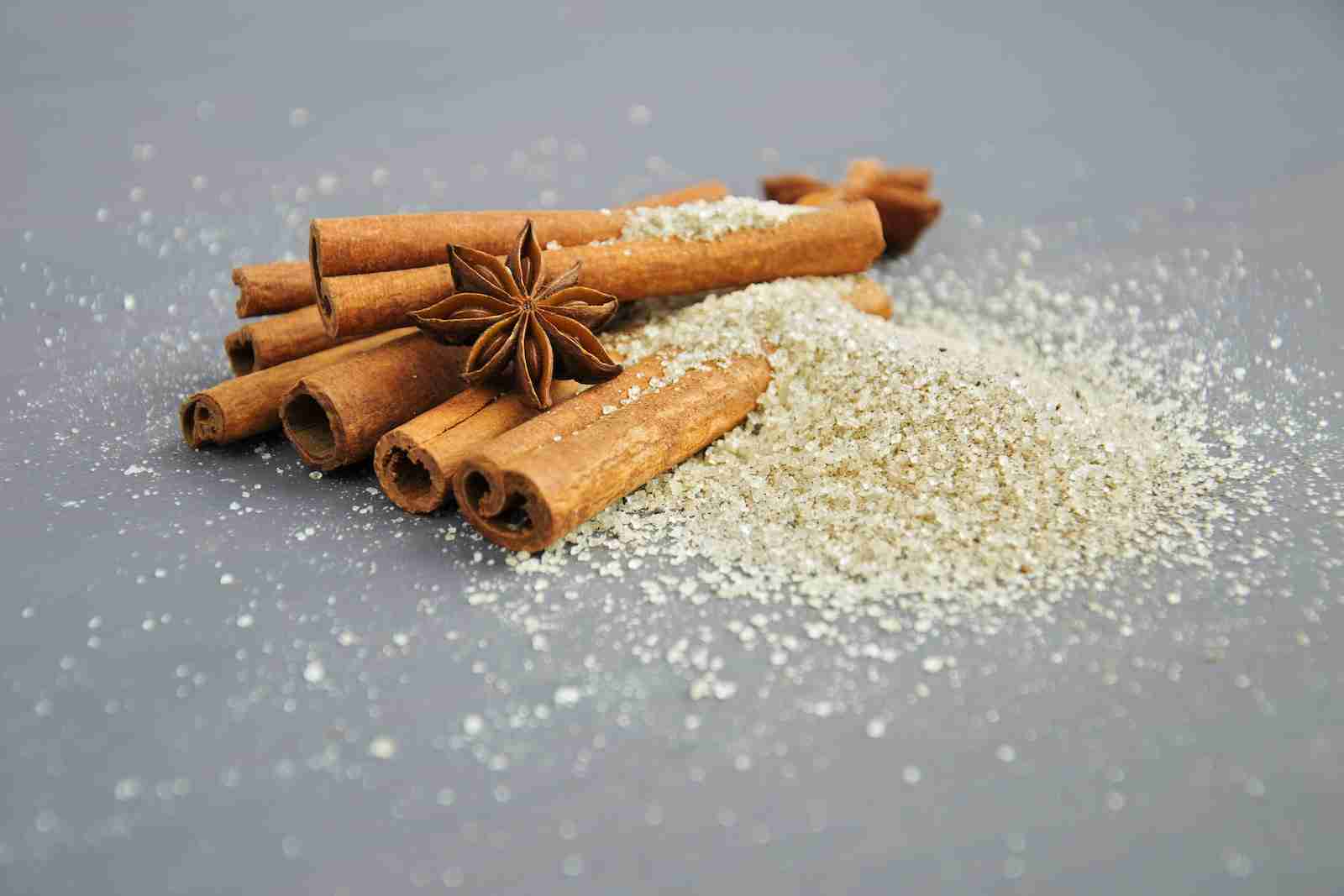20 Interesting Facts About Cinnamon
1. Cinnamon is a spice that comes from the inner bark of trees from the genus Cinnamomum.
Cinnamon is a spice that comes from the inner bark of trees from the genus Cinnamomum. The inner bark is peeled off and dried, forming the cinnamon sticks or quills that are commonly used in cooking.
The sticks can be ground into a fine powder, which is often used as a spice in baking and cooking. Cinnamon has a warm, sweet, and slightly spicy flavor that pairs well with many different types of food.
2. Cinnamon was highly valued in ancient Egypt and was even more valuable than gold.
Cinnamon was highly valued in ancient Egypt and was even more valuable than gold. It was used in embalming practices and as a perfume, and was also used in cooking and as a medicine.
The Egyptians traded cinnamon with other cultures along the spice route, and it was highly sought after for its aroma and flavor.
In ancient Rome, cinnamon was also highly valued, and it was used in cooking and as a medicine.
3. Cinnamon is a natural insect repellent.
Cinnamon is a natural insect repellent that can help keep pests away without the use of harmful chemicals.
Its strong aroma can deter mosquitoes, flies, and other insects from entering a home or garden. Cinnamon can be used in the form of essential oil, or cinnamon sticks can be burned to release its fragrance.
Additionally, cinnamon can be sprinkled around the edges of a garden or home to create a barrier that insects will not cross.
4. Cinnamon has been used as a natural food preservative.
Cinnamon has been used as a natural food preservative for thousands of years due to its antimicrobial properties.
Its essential oils can inhibit the growth of bacteria, fungi, and other harmful organisms that can spoil food. This has made cinnamon a popular spice in regions with hot and humid climates, where food can spoil quickly.
In addition to its preservative properties, cinnamon has a sweet and spicy flavor that can enhance the taste of food.

5. Cinnamon can help freshen breath.
Cinnamon can help freshen breath by killing the bacteria in the mouth that causes bad breath.
Its essential oils have antimicrobial properties that can kill bacteria and fungi in the mouth, while its sweet and spicy flavor can mask bad odors.
Chewing on cinnamon sticks or using cinnamon-flavored chewing gum can help keep breath fresh throughout the day.
6. Cinnamon has been used in traditional medicine for centuries.
Cinnamon has been used in traditional medicine for centuries due to its potential health benefits. It has been used to treat a variety of conditions, including digestive problems, respiratory illnesses, and menstrual cramps.
Cinnamon contains compounds that have anti-inflammatory and antioxidant properties, and may help lower blood sugar levels and improve insulin sensitivity.
While more research is needed to confirm its potential health benefits, cinnamon remains a popular natural remedy for a variety of ailments.
7. Cinnamon is used in many different types of cuisine.
Cinnamon is used in many different types of cuisine around the world, including sweet and savory dishes.
In the United States, it is often used in sweet dishes like apple pie and cinnamon rolls. In Mexico, it is used in savory dishes like mole sauce, which contains cinnamon and chocolate.
In India, it is used in a variety of sweet and savory dishes, including biryani and chai tea. Cinnamon’s versatility and distinct flavor make it a popular spice in many different types of cuisine.
8. Cinnamon can help lower blood sugar levels.
Cinnamon may help lower blood sugar levels and improve insulin sensitivity in people with type 2 diabetes. Its compounds can mimic the effects of insulin in the body, helping to regulate blood sugar levels.
Additionally, cinnamon may help slow the absorption of carbohydrates, which can help prevent spikes in blood sugar levels after meals.
While more research is needed to confirm these effects, cinnamon may be a useful natural supplement for people with diabetes.

9. Cinnamon has a long shelf life.
Cinnamon has a long shelf life due to its antimicrobial properties. Its essential oils can inhibit the growth of bacteria, fungi, and other harmful organisms that can spoil food.
This has made cinnamon a popular spice in regions with hot and humid climates, where food can spoil quickly.
Cinnamon sticks can be stored in an airtight container for several months, while ground cinnamon should be used within six months to ensure optimal freshness.
10. Cinnamon is a popular flavor for candies and gum.
In addition to its culinary uses, cinnamon is also commonly used in the manufacturing of candies and chewing gum, where it adds a spicy and refreshing kick to these treats.
The warming and stimulating properties of cinnamon are believed to offer various health benefits, such as improving digestion, boosting immunity, and reducing inflammation.
11. Cinnamon has been used as a natural food preservative.
Cinnamon has been used as a natural food preservative for thousands of years due to its antimicrobial properties.
Its essential oils can inhibit the growth of bacteria, fungi, and other harmful organisms that can spoil food. This has made cinnamon a popular spice in regions with hot and humid climates, where food can spoil quickly.
In addition to its preservative properties, cinnamon has a sweet and spicy flavor that can enhance the taste of food.
12. Cinnamon can help freshen breath.
Cinnamon can help freshen breath by killing the bacteria in the mouth that causes bad breath.
Its essential oils have antimicrobial properties that can kill bacteria and fungi in the mouth, while its sweet and spicy flavor can mask bad odors.
Chewing on cinnamon sticks or using cinnamon-flavored chewing gum can help keep breath fresh throughout the day.
13. Cinnamon has been used in traditional medicine for centuries.
Cinnamon has been used in traditional medicine for centuries due to its potential health benefits. It has been used to treat a variety of conditions, including digestive problems, respiratory illnesses, and menstrual cramps.
Cinnamon contains compounds that have anti-inflammatory and antioxidant properties, and may help lower blood sugar levels and improve insulin sensitivity.
While more research is needed to confirm its potential health benefits, cinnamon remains a popular natural remedy for a variety of ailments.
14. Cinnamon is used in many different types of cuisine.
Cinnamon is used in many different types of cuisine around the world, including sweet and savory dishes.
In the United States, it is often used in sweet dishes like apple pie and cinnamon rolls. In Mexico, it is used in savory dishes like mole sauce, which contains cinnamon and chocolate. In India, it is used in a variety of sweet and savory dishes, including biryani and chai tea.
Cinnamon’s versatility and distinct flavor make it a popular spice in many different types of cuisine.
15. Cinnamon can help lower blood sugar levels.
Cinnamon may help lower blood sugar levels and improve insulin sensitivity in people with type 2 diabetes. Its compounds can mimic the effects of insulin in the body, helping to regulate blood sugar levels.
Additionally, cinnamon may help slow the absorption of carbohydrates, which can help prevent spikes in blood sugar levels after meals.
While more research is needed to confirm these effects, cinnamon may be a useful natural supplement for people with diabetes.
16. Cinnamon has a long shelf life.
Cinnamon has a long shelf life due to its antimicrobial properties. Its essential oils can inhibit the growth of bacteria, fungi, and other harmful organisms that can spoil food.
This has made cinnamon a popular spice in regions with hot and humid climates, where food can spoil quickly.
Cinnamon sticks can be stored in an airtight container for several months, while ground cinnamon should be used within six months to ensure optimal freshness.

17. Cinnamon can help repel insects
Cinnamon can help repel insects due to its strong scent and antimicrobial properties. Its essential oils can help kill bacteria and fungi that insects are attracted to, while its scent can help mask the scent of food and other attractants.
Additionally, cinnamon can be used to repel insects in the garden, as it can help prevent the growth of fungal diseases in plants.
Cinnamon can be used in a variety of ways to repel insects, including sprinkling cinnamon powder around the home, burning cinnamon sticks as incense, or using cinnamon oil as a natural insect repellent.
18. Cinnamon is a source of important nutrients
Cinnamon is a source of important nutrients, including manganese, calcium, and fiber.
Manganese is an essential nutrient that helps support bone health and wound healing, while calcium is important for strong bones and teeth.
Additionally, cinnamon contains fiber, which can help support digestive health and reduce the risk of chronic diseases like heart disease and diabetes.
While cinnamon is often used in small amounts as a spice, incorporating it into meals and snacks can provide important nutrients and support overall health.
19. Cinnamon is harvested from the inner bark of trees
Cinnamon is harvested from the inner bark of trees in the Cinnamomum genus. The bark is removed from the tree in long, thin strips and then left to dry in the sun.
As it dries, the bark curls into the familiar cinnamon stick shape. The cinnamon sticks are then cut into smaller pieces or ground into powder.
Most cinnamon is harvested in Sri Lanka, but it is also grown in other parts of Asia, as well as in South America and the Caribbean.
20. Cinnamon is a versatile spice
Cinnamon is a versatile spice that can be used in both sweet and savory dishes. Its warm, sweet flavor pairs well with a variety of foods, including fruits, nuts, meats, and vegetables.
Cinnamon can be used as a spice in baking, cooking, and seasoning, or as a natural sweetener in place of sugar.
Additionally, cinnamon can be used in a variety of drinks, including coffee, tea, and cocktails. Its versatility and distinct flavor make cinnamon a popular spice in cuisines all around the world.








